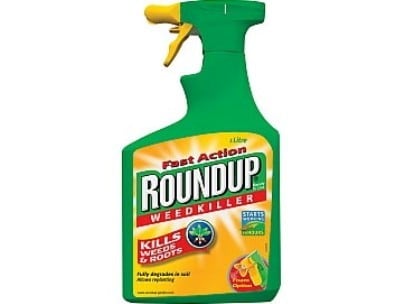
In 2007, Monsanto was convicted of false advertising in France after advertising Roundup as biodegradable and claiming that the product actually cleaned the soil after use. Monsanto is facing new allegations that its glyphosate-based weed killer, Roundup, is unsafe.
Monsanto today responded to a report from AP, who interviewed doctors in Argentina who said their caseloads revealed a correlation between industrial agriculture and rising cancer rates. Argentina’s agricultural production has tripled in the past two decades.
The company criticized the report as unscientific. Monsanto spokesperson Thomas Helscher said “the absence of reliable data makes it very difficult to establish trends in disease incidence and even more difficult to establish causal relationships. To our knowledge there are no established causal relationships.”
But AP says its story “cited hospital birth records, court records, peer-reviewed studies, continuing epidemiological surveys, pesticide industry and government data, and a comprehensive audit of agrochemical use in 2008-11 prepared by Argentina’s bipartisan Auditor General’s Office.”
This isn’t the first time Monsanto has faced challenges over the product. In 1996 it was forced to pull ads that claimed Roundup was “safer than table salt” and “practically nontoxic”.
In 2007, the St.Louis-based company was convicted of false advertising in France after advertising Roundup as biodegradable and claiming that the product actually cleaned the soil after use. The European Union declared has classified glyphosate as “dangerous for the environment” and “toxic for aquatic organisms”. Monsanto appealed this decision, but the verdict was upheld in the French Supreme Court in 2009.
On October 12th, more than 400 “Occupy Monsanto” rallies were held across the world, including several in Canada. Critics says Monsanto is the chief proponent of genetically modified plants they believe may be unsafe and should require more stringent labeling.
________
Leave a Reply
You must be logged in to post a comment.



 Share
Share Tweet
Tweet Share
Share




Comment